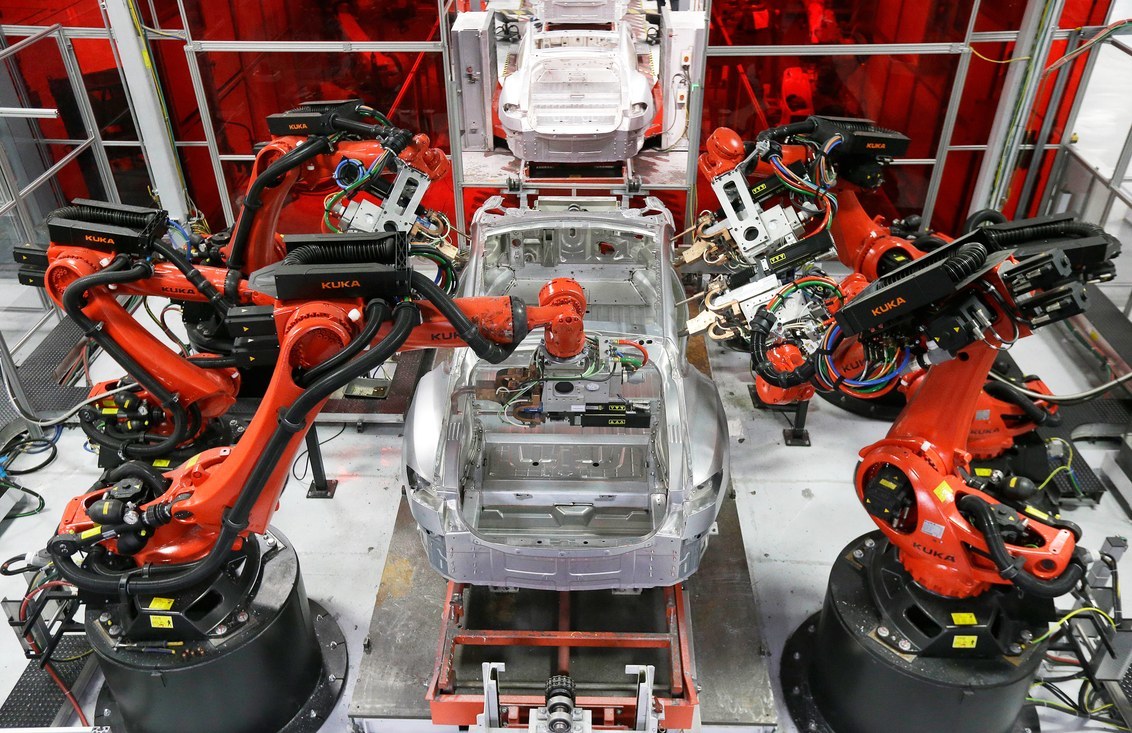(Original Title: Should We Tax the Wealthy and the Machines? California's Considering It)
NetEase Technology News, August 25—According to "The Link," there’s a growing debate over how people perceive robots and artificial intelligence (AI). Depending on whom you ask, some might see robots and AI as a threat taking over jobs, while others believe they’re relatively harmless, at least in the short term. However, the reality remains that automation consistently leads to job displacement. This time around, even high-skilled professions are being impacted. Many worry that robots and AI could one day overhaul the entire human workforce.

This concern has caught the attention of Jane Kim, a San Francisco city councilor who recently initiated an initiative known as the "Jobs of the Future Fund." The goal is to examine the phenomenon of "stolen work" across the state and impose a "payroll tax" on machines. Revenue from this tax would go toward initiatives such as job retraining programs, free community colleges, or even a universal basic income. Kim believes that such measures could help make robots more palatable to future generations.
Inspired by Microsoft co-founder Bill Gates, who suggested taxing robots in a February interview, Kim has since lobbied stakeholders, including labor unions, while urging San Francisco and California to explore this possibility further.
To implement a robot tax, however, several issues must first be addressed. For instance, defining what exactly constitutes a "robot" proves challenging, even for experts in the field. Is AI considered a robot when it performs human-like tasks? Not quite, but if we're serious about tackling this issue, we might have to consider it. Kim stated, “We are still studying the definitions of robots and job replacement. Thus, the initiation of future fund work will allow us to discuss practical measures that can be implemented statewide.â€
This doesn’t mean Kim is pushing for immediate legislation requiring California to enact a robot tax. Instead, she aims to host public forums that engage stakeholders, including everyday Californians, in broader discussions. Of course, this doesn’t guarantee the introduction of a robot tax. Kim admitted, “Perhaps this will ultimately evolve into a different type of tax or other forms of revenue generation.â€
Regardless of whether the "robot tax" proposal proves feasible or effective, it highlights growing public anxiety over the increasing prevalence of machines and ever more sophisticated software. While such advancements improve our lives, they also evoke fears of job loss. After all, work provides not just financial sustenance but also a sense of purpose and identity. What happens when a machine steps in to replace your role?
Kim’s proposal for taxing robots hasn’t garnered widespread support. Gates’ remarks sparked significant controversy. Naturally, businesses are reluctant to embrace additional taxes. Experts in the field aren’t convinced this wave of automation will diminish the workforce. Dean Baker, co-founder of the Center for Economic and Policy Research, remarked, “These are new technologies, distinct from previous ones, but it’s unclear what their long-term implications are. Even as fewer cars are needed, mass unemployment hasn’t occurred.â€
Yet, this wave of automation differs fundamentally because it focuses more on software than hardware. The rise of AI suggests even white-collar jobs might no longer be secure. Consider how many tasks in your daily routine are repetitive—replacing them with advanced machines is becoming increasingly straightforward. Complicating matters further, robots and AI often create more jobs than they eliminate. After all, the software we use today is far more capable than it was just five years ago. Collaborative robots are now working alongside humans in unprecedented ways.
In theory, this will boost productivity and reduce the average human workload. What does this mean for the robot tax? Kim explained, “In its simplest form, we’re looking for robots that can perform human tasks. But we know this isn’t straightforward because automation primarily automates specific tasks.†Gold’s perspective aligns with making society aware of the inevitable changes automation brings, regardless of its impact on the workforce. (Small note)
However, the conversation extends beyond just robots. As technology continues to evolve, society must grapple with questions about wealth distribution, job security, and the future of work itself. Could taxing robots be part of a broader strategy to address inequality? Or might it merely delay the inevitable? Either way, California’s exploration serves as a microcosm of larger societal debates unfolding worldwide. One thing is clear: the relationship between humans and machines is evolving rapidly, and the decisions we make today will shape the world of tomorrow.
Pd Charging Cable,Fireproof Braided Data Cable,Aluminum Alloy Usb Cable,Fast Charger Usb C To Type-C Cable
Dongguan Pinji Electronic Technology Limited , https://www.iquaxusb4cable.com
